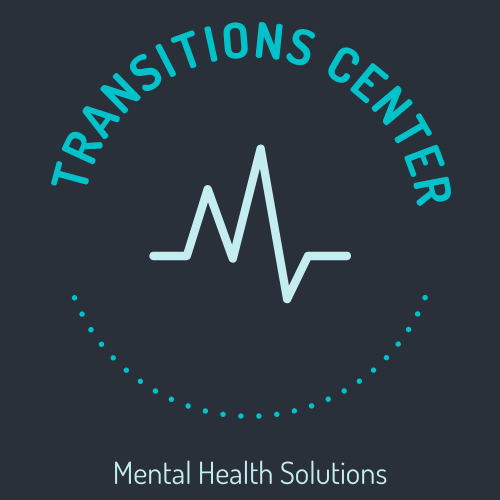Mental illnesses are a group of disorders that affect your mood, thinking and behavior. You can’t usually identify a mental illness by appearance, but it can still be very serious and get in the way of leading a normal life.
Mental illness is also sometimes called psychological disorder or psychiatric disorder. Mental illness can be associated with changes in thought, perception, emotion and behavior.
Stressful events can be a trigger for mental illness in people who are already at risk of developing the condition. This is called “psychological trauma.” Traumatic events include bereavement, divorce, accidents and physical or sexual abuse. They can also include bullying or being stalked.
Symptoms of different types of mental illnesses vary according to the type of illness but often reflect disturbances in thinking, mood, or behavior associated with distress or impaired functioning. Some common symptoms may include changes in sleeping patterns, eating habits, energy levels, concentration levels or self-esteem.
Mental illnesses are diagnosed according to criteria listed in diagnostic manuals such as the ICD-10 Classification of Mental and Behavioural Disorders or the Diagnostic and Statistical Manual of Mental Disorders (DSM-IV).
4 Different Types Of Mental Illness
1. Mood Disorders: A mood disorder is a condition that causes someone to feel persistently sad or low in spirits, often for weeks or months on end. This can cause problems with day-to-day living as well as lead to health issues such as depression. Other forms of mood disorder include bipolar disorder (previously known as manic depression) and cyclothymia which involves persistent feelings of hopelessness and other symptoms similar to those experienced by people with depression but fewer in number and less severe. During times when the individual has good days along with bad days it might be hard to tell whether they’re suffering from a mental health problem or just having a bad week.
2. Psychotic Disorders: These types of mental illnesses involve disruptions in perception such as hearing voices, seeing things that aren’t real or having strange beliefs even though there is proof that those beliefs aren’t true (delusions). Schizophrenia is the most common psychotic disorder and typically begins between ages 16 to 30. It affects around two people in every 1,000 and men and women equally. People with this condition often find it hard to tell the difference between what’s real and what isn’t – for example, they might think other people can ‘hear their thoughts’ or that their actions are controlled by an outside force. This can cause a range of different symptoms, from hallucinations where they hear or see things that aren’t there to delusions where they believe something is true even though it’s not. People with schizophrenia also have a higher risk of developing other mental illnesses such as depression and anxiety disorders.
3. Personality Disorders: These are conditions that cause people to have long-term patterns of thoughts and behaviors that differ from what society considers to be normal. People with personality disorders tend to view the world differently and react to situations in their own unique ways, causing problems in relationships with others.
4. Eating Disorders: These types of mental illnesses affect eating habits and can result in serious medical complications. Anorexia Nervosa is an eating disorder where people have a distorted body image and become extremely underweight. A person with bulimia nervosa is obsessed with their weight and body shape, which drives them to go through a compulsive binge-eating episode followed by behaviours to try to undo or compensate for the effects of the binge-eating. This can include forced vomiting, over exercise or fasting. Eating disorders are serious conditions that require treatment from a team of health professionals including doctors , psychiatrists , dietitians and psychologists.
Severity levels can range from mild to severe depending on the type of mental illness as well as its duration and the symptoms associated with it. In case you’re worried about a family member or a friend’s mental health, here’s how to tell if someone is going through a tough time emotionally. You can also read these tips for encouraging someone you care about who needs help to seek professional support.
Keep in mind that if your symptoms are interfering with your daily life, or if they’re causing you stress or anxiety, it’s time to reach out for help. There’s plenty of support available.
About the Authors
Transitions Center for Natural Mental Health Treatments for a variety of physical and mental dependency issues and conditions. Substance use disorders are difficult to understand for many people. The physical and mental aspects of any substance disorder are complicated and unique to the individual suffering. The differences between physical and psychological dependency vary but have some similarities. Transitions Center for Natural Mental Health Treatments help the public know what to look for as a means of helping a loved one cope with the challenges of mental health disorders.
Sponsored by the best cbd oil online delivery. If you’re looking for an alternative to prescription drugs, Mary Jane’s CBD Dispensary is the place to go. As America’s favorite and most talked about natural remedy, cannabinol (CBD) has become a popular choice among consumers because of its many benefits. Our team at Mary Jane’s are extremely passionate about this industry-leading product and aim to educate our customers on how they can incorporate it into their lives with ease. Are you ready to take your health goals seriously? Get in touch with us today!

